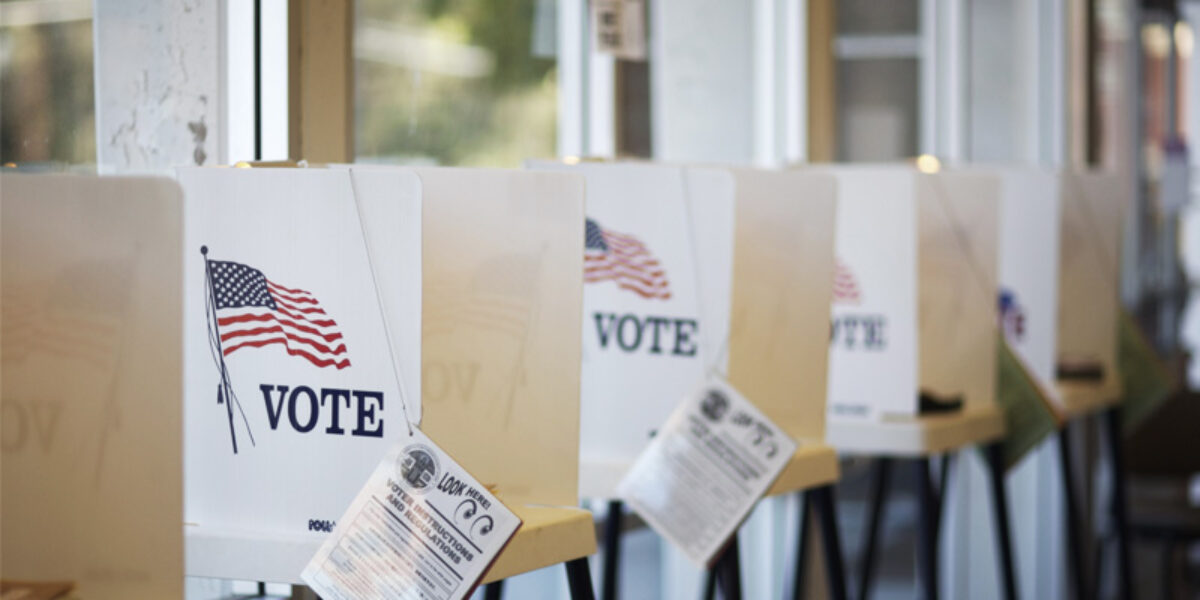Relax! This isn’t another scorecard rating the “biblicality” of each candidate. It’s a decidedly non-partisan look at some Scriptures that might keep your faith on course in this contentious time.
- 1 Corinthians 13:4-6: “Love is patient, love is kind. . . . It does not dishonor others, it is not self-seeking, it is not easily angered, it keeps no record of wrongs. Love does not delight in evil but rejoices with the truth.”
This whole chapter establishes the pre-eminence of love for the believer. It starts out by asserting that, no matter how great our worship, knowledge, faith, or sacrifice, if we do not have love, we’re “nothing.” Then it defines love in rich detail. You might think you’re fighting the good fight by forwarding some snarky blurb about an opposing candidate, but how does that action measure up to this biblical definition of love?
- James 1:19-20: “Everyone should be quick to listen, slow to speak and slow to become angry, because human anger does not produce the righteousness that God desires.”
The airwaves are filled with angry talking . . . and very little listening. In election season, this tendency is intensified. Campaign ads notoriously misquote opponents, doing more to tear down the other candidate than to build up their own. But don’t let that seep into your own behavior—especially when you find yourself in a political discussion, on line or in person. You won’t agree with everyone, but you should be quicker to listen than to speak.
- Philippians 3:20:“But our citizenship is in heaven. And we eagerly await a Savior from there, the Lord Jesus Christ.”
The Bible doesn’t tell us much about living in a democracy. The Old Testament Law set up a theocracy, in which God was understood as the ultimate ruler, who guided Moses, Joshua, and other leaders. This system fell apart under certain unfaithful judges and kings, and then God’s people were dominated by foreign rulers. The New Testament was written to people under occupation . . . and sometimes persecution.
Living in a free land, where we can elect our leaders—this would be a strange concept to Moses or David or Paul. Should we elect Christian leaders, who will enact Christian principles as the laws of the land? The Bible does not give us a clear answer to that, since the biblical writers never encountered that possibility.
But we do find this reminder from Paul’s letter to Philippi, a Roman colony in which the people were probably quite proud of their status as Roman citizens. Our real citizenship is elsewhere, not on this earth at all. That doesn’t keep us from loving our country, but it calls us to love our eternal homeland even more. - Matthew 5:3-10: “Blessed are . . . the poor in spirit . . . those who mourn . . . the meek . . . those who hunger and thirst for righteousness . . . the peacemakers.”
The world of politics is all about power—who has it, who wants it, and how they’ll use it. In election season, we’re tempted to do
whatever it takes to gain power. “After all, look at all the good things we’ll be able to do, once we’re in power. That makes it all okay, right?” But Jesus regularly exalted the powerless—the humble, the gentle, the needy. He taught an upside-down view of life. The first would be last and the last first. You can gain the whole world, but it’s not worth losing your soul (Mark 8:36). Let’s make sure our political power struggles don’t trample over the simple values of our Master. - Philippians 1:27-28: “Whatever happens, conduct yourselves in a manner worthy of the gospel of Christ . . . without being frightened in any way by those who oppose you.”
How many of the political ads you see are driven by
fear? “If you elect this scoundrel, it will mean the end of civilization as we know it! Zombies will stagger freely through the land!” The apostle was not writing about political campaigns, but about persecution. Even when threatened with physical harm, Christians need not fear their foes. Instead, we are called to love our enemies (Matthew 5:44). Peter sounded a similar note, adding, “Do not repay evil with evil or insult with insult” (1 Peter 3:9). We are people of the Good News. Don’t let the fear of some political outcome obscure that fact. Conduct yourself in a loving manner, empowered by our loving Lord.
All quotations from NIV





